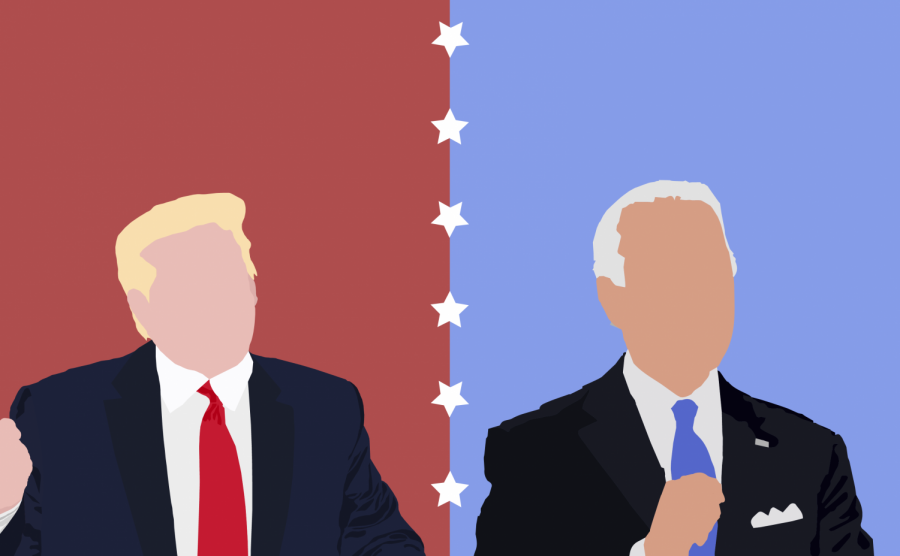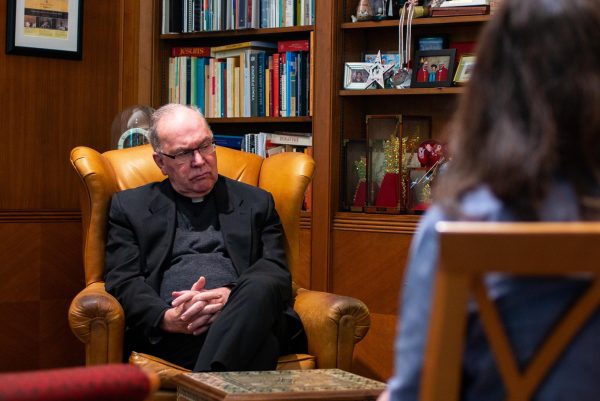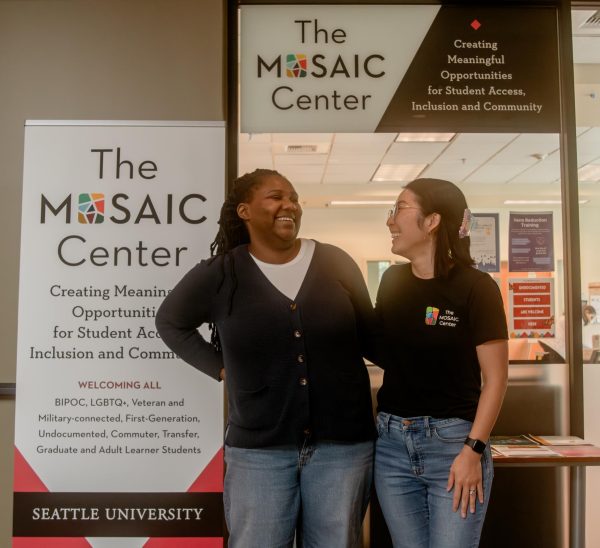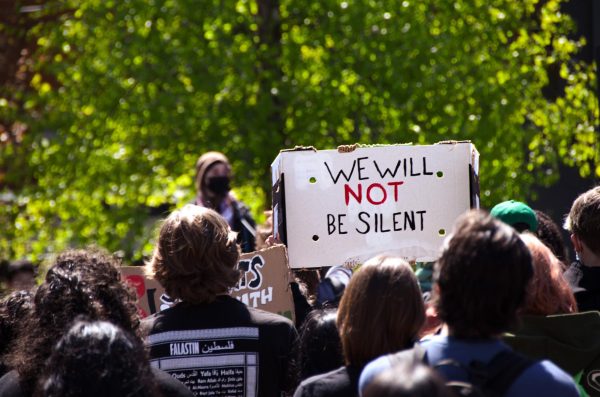Seattle U Community Reacts to Prolonged Election Week Amid End of Quarter Stress
Anxiously awaiting results of the 2020 Presidential election, people across the country sat on the edge of their chairs for days on end. The election itself took place amid the ongoing COVID-19 pandemic, pre-existing controversy over candidates and unsubstantiated concerns over fair ballot counting. For the Seattle University community, it also took place in the ninth week of the quarter as students, faculty and staff rapidly approach finals week.
With the projected election results stating that Joe Biden won Nov. 7, Seattle U students, faculty and staff were facing the repercussions of an ongoing election week on top of their usual workload.
Seattle U President Stephen V. Sundborg, S.J. dedicated time during election week for faculty and staff to decompress together as election results remained pending.
“I think people found it very emotional in regard to their reactions that certainly came out in the meeting with faculty and staff,” Sundborg said. “They didn’t realize how much emotion, stress and anticipation had been building up for such a long and brutal campaign.”
Unable to legally declare support for a candidate prior to election results, Sundborg gave words of general support to President-elect Joe Biden and Vice President-elect Kamala Harris in a time of turmoil and transition. Sundborg is hopeful that the new presidency will combat social justice issues that Seattle U is also working to address within its community.
Sundborg shared personal advice for the Seattle U community during current times.
“I think we all need to try to listen, understand and get to know America better than we do,” Sunborg said. “I would encourage us all to realize that we’re just one part of America, and we’re of a strong viewpoint here [in Seattle]…We have an obligation to know one another better.”
Seattle U has placed an emphasis on mental health and wellness services, particularly in response to returning and incoming students living on-campus.
In terms of stressors relating specifically to the uncertainty of the 2020 Presidential election, Director of Wellness and Health Promotion Chris Fiorello mentioned that the long-term consequences and ultimate outcome of recent events are important to keep in mind.
“The control of the Senate won’t be determined until Jan. 5, which I think can create additional anxiety,” Fiorello said. “We’re looking at doing listening sessions. People would call in and just sort of talk about how they’re feeling in the moment.”
Despite access to additional resources, some students are having a difficult time focusing their attention on academia during stressful times like the present.
Fourth-year Political Science major Niko Manetas still experienced stress and an overall sense of anxiety last week, especially with the prolonged duration of election results.
“It was tough to not look at the election feed and the news coming in. But at the same time, it was pretty slow-going. I was able to peel away from the news cycle for a couple hours at a time and then come back,” Menetas said.
Manetas is hopeful that President-elect Joe Biden and Vice President-elect Kamala Harris will work hard to unify the country in the midst of a global pandemic and political division, but mentioned that plenty of work remains.
“America is not settled now. I think between Trump and Biden, Biden is the one that’s more likely to play the unifying role,” Manetas said. “So I’m optimistic, but we’re such a deeply divided country.”
Secretary of State Mike Pompeo announced Nov. 10 a “smooth transition to the second Trump administration” in a news conference, a continuation of Trump’s narrative of not being willing to leave office in January. Erik Olsen, a professor of political science, expressed community concern and worry, with many calling this move anti-democratic and authoritarian in nature.
“Aside from Trump himself, who I think just can’t stand the idea of losing, I think that these comments are subversive of democracy,” Olsen said. “The rhetoric, at the very least, is authoritarian. Along with preventing the transition from occurring, it starts to make this presidency look like a proto-facist regime.”
The election will undoubtedly continue to affect the American political landscape, from the effects of the record voter turnout to the change of Arizona as a blue state for the first time in more than two decades.
With over 70 million Americans voting for the incumbent president, the 2020 Presidential election has been in no way a resounding declaration against Trump, says Olsen. Especially with a high number of ballot races for the House and Senate, Trump allies won resoundingly, which included Lauren Boebert in Colorado and Marjorie Taylor Greene in Georgia.
“I think that what we really need to take away from this election is that Trumpism is here to stay among the Republican party,” Olsen said. “Trump was clearly tapping into a lot of resentments, as irrational as they may be. What worries me is that we might get someone who will tap into that set of beliefs and be able to use that power more competently politically.”
Pilar Licht, a second-year psychology major, also attested to the negative effects of comments made by Trump and an overall ideology that has pervaded American society.
“I was really stressed out and I didn’t sleep very much, but I feel like a lot of professors were understanding that this is not a good time to be a student,” Licht said. “I definitely got a lot of reactions from my female friends—we’re just nervous about living during these times.”
Ian Santiago, a fourth-year electrical engineering student, felt mildly hopeful following projected election results.
“I was anxious, but I definitely have been cautiously optimistic,” Santiago said. “I acknowledge that I am a cisgendered male, even though I’m a person of color. Those most heavily affected by this presidency are other groups, like the LGBTQ+ community, Black lives and other people of color.”
Fiorello emphasized the detrimental effects of heavy social media usage, particularly among college students.
“One of the things that I think everybody should be doing right now is taking stock of the media that we’re consuming, and not just social media, but how everything we’re consuming has an impact on us and the breaks we need to take,” Fiorello said.
Political unrest brought to light before, during and after the 2020 Presidential election is only the beginning of larger-scale movements. Especially now, societal issues are of utmost concern and prioritization to Seattle U students and faculty alike.
“I think our students care a lot about the world. You don’t just choose a school like Seattle U with a focus on the Jesuit mission that openly says in its mission,” Fiorello said. “We’re preparing leaders for a just and humane world, but recognize there are times where you need to take some time for your personal self-care and wellness.”











